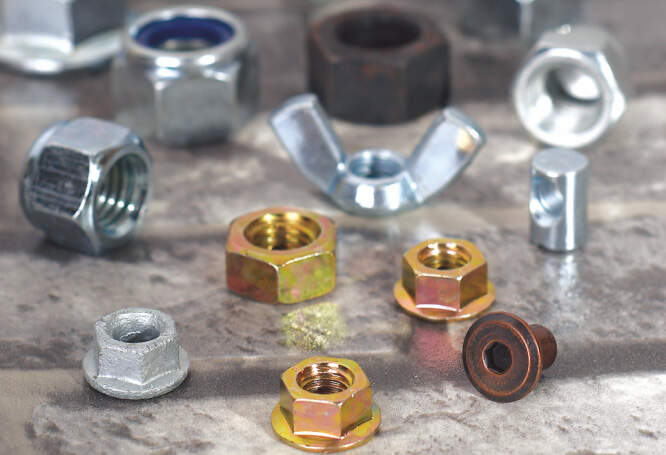Hex Nuts vs. Square Nuts: A Comprehensive Comparison of Durability and Applications
July 10,2023
When it comes to fasteners, nuts play a crucial role in securing various components together. Hex nuts and square nuts are two popular options, each with its own unique characteristics. In this blog post, we will delve into the debate of hex nuts vs. square nuts, exploring their durability, performance, and applications. By understanding the differences between these two types of nuts, you can make informed decisions for your fastening needs.
I. Hex Nuts
Design and Functionality
Hexagonal Shape: Hex nuts feature six flat sides, allowing for easy gripping and tightening with a wrench or socket.
Versatile Fastening: Hex nuts are widely used in construction, automotive, and machinery industries due to their compatibility with hex bolts and screws.
Durability
Enhanced Strength: The hexagonal shape provides more contact points, distributing the load evenly and reducing the risk of stripping or rounding.
Corrosion Resistance: Hex nuts are available in various materials, including stainless steel and galvanized steel, offering excellent resistance to corrosion and rust.
Applications
General Construction: Hex nuts are commonly used in structural applications, such as building frames and bridges.
Automotive and Machinery: Hex nuts are ideal for securing components in engines, machinery, and equipment due to their durability and compatibility.
II. Square Nuts
Design and Functionality
Square Shape: Square nuts have four flat sides, providing a larger bearing surface and preventing rotation when tightened.
Easy Alignment: The square shape allows for easy alignment with square bolts or threaded rods during installation.
Durability
Load Distribution: Square nuts distribute the load over a larger area, reducing the risk of damage to the material being fastened.
Resistance to Loosening: The square shape provides resistance to loosening caused by vibrations or torque, ensuring a secure and stable fastening.
Applications
Woodworking: Square nuts are commonly used in woodworking projects, such as furniture assembly, where a flush and stable connection is desired.
Electrical and Plumbing: Square nuts are suitable for securing electrical boxes, conduit fittings, and plumbing fixtures due to their stability and resistance to rotation.
III. Durability Comparison between Hex Nuts and Square Nuts
Load Distribution: Both hex nuts and square nuts distribute the load effectively, preventing damage to the material being fastened.
Resistance to Loosening: The square shape of square nuts provides additional resistance to loosening, making them suitable for applications with vibrations or torque.
Corrosion Resistance: Both hex nuts and square nuts are available in various materials, including stainless steel and galvanized steel, offering excellent corrosion resistance.

Hex Nuts and Square Nuts are Both Durable in Different Application
When it comes to durability, both hex nuts and square nuts offer reliable performance in different applications. Hex nuts excel in general construction, automotive, and machinery industries, providing enhanced strength and corrosion resistance. On the other hand, square nuts are ideal for woodworking, electrical, and plumbing applications, offering stability and resistance to rotation. By understanding the unique characteristics of each nut type, you can choose the most suitable option for your specific project requirements. Whether it’s the versatility of hex nuts or the stability of square nuts, both options ensure secure and durable fastening solutions.